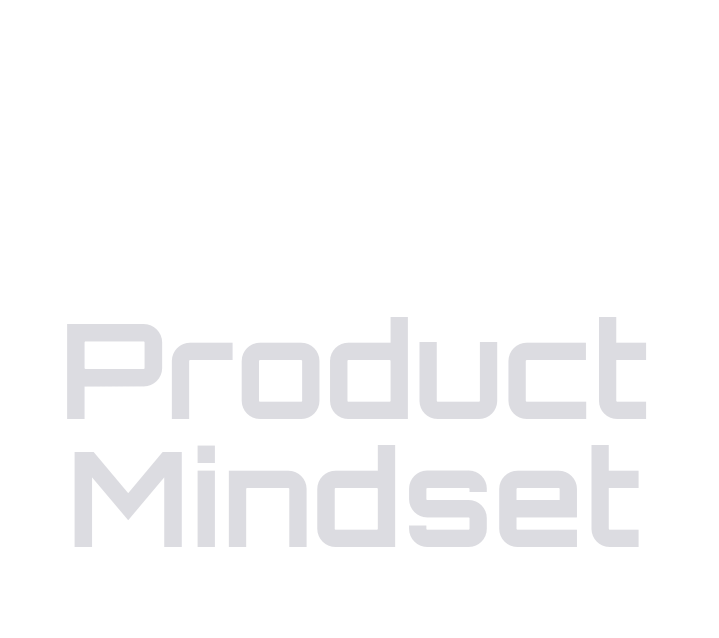Key Points
- Research suggests middle managers face challenges balancing RTO policies with Gen Z’s preference for remote work, leading to potential clashes with company leadership.
- It seems likely that effective communication and flexibility can help harmonize multigenerational work preferences.
- The evidence leans toward involving Gen Z in decision-making and emphasizing in-person work benefits to create a harmonious work environment.
Exploring the Concepts of RTO and Generation Z’s Work Preferences
Analyzing the workplace of 2025, we see a generational shift in work preferences as companies’ RTO (return-to-office) policies are in full effect, requiring employees to be in office full-time or on set days. The mid-90s to early 2010 birth cohort, known as Gen Z, prefer hybrid work arrangements as they value flexibility and work-life balance, although in-person collaboration, networking, and learning is beneficial. This creates a tough middle manager dilemma, balancing RTO expectations set by leadership to encourage team building and strengthen company culture against the backdrop of a clearly defined Gen Z timeline of expectations. In my previous article, I talked about the increasing influence of Gen Z leaders – today, I want to focus on the workforce dynamics as we learn to collaborate with them.
Challenges for Middle Managers
The middle managers of a company are in a tight spot since they have to enforce return-to-office (RTO) policies while contending with generational Z’s resistance stemming from their remote work preference. Some of these problems include the following:
- Maintaining team morale when employees start opposing the office return mandates.
- Maintaining productivity in hybrid work environments where silos hinder communication and collaboration.
- Balancing diverse preferences within teams, as older generations may favor in-office work.
- Handling potential conflicts with leadership over policy enforcement, especially when Gen Z threatens to leave jobs over strict RTO rules, with 70% of remote/hybrid workers considering alternative employment according to a 2025 FTI Consulting survey.
Clashes Between Leadership and Younger Staff
Company leadership often views RTO as essential for boosting collaboration and productivity, while Gen Z sees it as infringing on their flexibility and work-life balance. This clash can lead to:
- Higher turnover rates, with 45% of Gen Z considering leaving if RTO is mandated full-time, per the same FTI survey.
- Reduced engagement, as Gen Z may feel their needs are overlooked, with 64% working for organizations with recent RTO policies showing mixed results, per the 2024 Deloitte survey.
- Trust issues, with leadership perceived as controlling, especially when RTO is seen as a way to exert authority rather than enhance work outcomes.
Strategies for Harmonization
To bridge this divide, middle managers can adopt the following strategies:
- Effective Communication: Clearly explain RTO benefits, such as learning opportunities and networking, to Gen Z, reframing office attendance as an opportunity rather than an obligation, as suggested by a 2025 Business Insider article.
- Flexibility: Offer hybrid models, allowing some remote days to meet Gen Z’s need for work-life balance, with 91% favoring a mix of in-person and remote work per a 2025 ITPro article.
- Involve Employees: Include Gen Z in decision-making to make them feel valued, fostering trust and reducing resistance.
- Tailor Management Styles: Adapt to generational preferences, providing autonomy and clear expectations, as recommended by a 2024 Forbes article.
- Training and Support: Equip managers with training on multigenerational team management, addressing biases and enhancing empathy, per a 2021 HBR article.
Comprehensive Analysis and Detailed Insights
This section provides a detailed examination of the challenges middle managers face in balancing RTO policies with Gen Z preferences, potential clashes with company leadership, and strategies for creating a harmonious work environment, drawing on extensive research and surveys as of March 15, 2025.
Background on RTO Policies and Generational Preferences
RTO policies in 2025 vary widely, with companies implementing full-time office mandates, hybrid models requiring specific in-office days, and fully remote options. A 2024 Robin report found that nearly 70% of companies have RTO mandates, averaging 3 days a week in the office, while a 2024 Forbes article noted a rise in structured hybrid models, now at 43% of organizations, up from 20% in early 2023.
Gen Z, comprising the workforce born from the mid-1990s to early 2010s, shows a strong preference for hybrid work. A 2024 HR Brew article revealed that 65% of remote-capable Gen Z employees prefer hybrid arrangements, higher than millennials (60%), Gen X (58%), and Baby Boomers (56%). This preference is driven by their need for flexibility, with 80% of undergraduates considering it essential, per a 2022 Handshake article, and their value for in-person learning, as noted by Gallup’s director in the HR Brew piece, citing the need for Gen Z to “learn how to work effectively within their organization, build relationships, and feel part of the culture.”
Detailed Challenges for Middle Managers
Middle managers, positioned between company leadership and employees, face significant hurdles in implementing RTO policies, particularly with Gen Z. A 2025 Business Insider article highlights their role in the “RTO crossfire,” with Gen Z resisting full-time office work, as 17% prefer working from home all the time and 24% most of the time, per a YouGov survey for The Times. A Pew Research Center survey from January 2025, cited in the same article, found 46% of remote-capable workers would be unlikely to stay if RTO were mandated, amplifying turnover risks.
Specific challenges include:
- Resistance and Morale: Gen Z’s preference for remote work can lead to morale issues, with a 2024 Forbes article noting 60% of employers firing Gen Z hires due to perceived unprofessionalism, potentially linked to RTO adjustment struggles.
- Productivity in Hybrid Settings: Ensuring team productivity is complex, with a 2024 McKinsey article emphasizing the need for effective practices over policy, as remote work can lead to “Zoom fatigue” and reduced collaboration, per a 2024 Bevi.
- Balancing Preferences: Managing diverse team preferences is challenging, with older generations potentially favoring in-office work, creating tension, as noted in a 2021 HBR article.
Potential Clashes with Company Leadership
Clashes arise from differing views on RTO’s necessity. Leadership often pushes for RTO to boost collaboration and maintain culture, with a 2025 McKinsey article noting Fortune 500 companies like Amazon and JP Morgan Chase mandating at least four days a week in 2024. Conversely, Gen Z sees RTO as infringing on flexibility, with a 2025 FTI Consulting survey showing 70% would leave over full-time RTO, and 45% of Gen Z considering alternative employment, highlighting turnover risks.
This tension is evident in trust issues, with a 2024 SHRM article noting 75% of employees believing RTO is a control mechanism, and a 2024 WorkLife News article finding half would quit immediately over non-negotiable RTO policies, exacerbating engagement gaps.
Strategies for Creating a Harmonious Work Environment
To harmonize work preferences, middle managers can adopt evidence-based strategies, supported by surveys and expert insights:
- Effective Communication: A 2025 Business Insider article suggests reframing RTO as an opportunity, emphasizing benefits like learning and networking for Gen Z, with 42% excited about RTO per the FTI survey, indicating a segment open to in-person work.
- Flexibility: Offering hybrid models aligns with Gen Z’s preferences, with 91% favoring a mix per a 2025 ITPro article, and a 2023 PeopleKeep article advocating for flexible guidelines to improve retention.
- Involve Employees: Involving Gen Z in decision-making fosters trust, as suggested by a 2024 SHRM article, with stay interviews to understand preferences, reducing resistance.
- Tailor Management Styles: A 2024 ClickUp article recommends autonomy and clear expectations, avoiding micromanagement, with 80% of Gen Z valuing flexibility per Handshake, enhancing engagement.
- Training and Support: Training on multigenerational management, per a 2021 AIHR article, addresses biases, with role-playing exercises to dispel stereotypes, fostering inclusivity.
Data and Survey Insights
The following table summarizes key survey findings relevant to RTO and Gen Z preferences:
| Survey Source | Key Finding | Percentage | Year |
| FTI Consulting (FTI RTO Survey) | Gen Z excited about RTO mandate | 42% | 2025 |
| FTI Consulting (FTI RTO Survey) | Would leave over full-time RTO | 70% (all workers) | 2025 |
| Deloitte 2024 (Deloitte Survey) | Work for organizations with recent RTO policies | 64% Gen Z | 2024 |
| HR Brew (Gen Z Hybrid) | Prefer hybrid work arrangements | 65% Gen Z | 2024 |
| ITPro (Gen Z Hybrid Working) | Favor mix of in-person and remote work | 91% Gen Z | 2025 |
| Handshake (Gen Z Job Preferences) | Flexibility essential when considering jobs | 80% undergrads | 2025 |
Unexpected Insight
An unexpected detail is that 42% of Gen Z are excited about RTO mandates, per the 2025 FTI Consulting survey, higher than Gen X (33%), suggesting a segment values office camaraderie and productivity, challenging the narrative of universal resistance and offering middle managers a lever to engage this group.
Middle managers can bridge the RTO divide by leveraging communication, flexibility, and involvement, supported by data showing Gen Z’s mixed responses to RTO. By fostering a culture of trust and tailoring management, they can create a harmonious work environment, accommodating diverse preferences and reducing clashes with leadership, ensuring productivity and retention in 2025’s multigenerational workforce.











